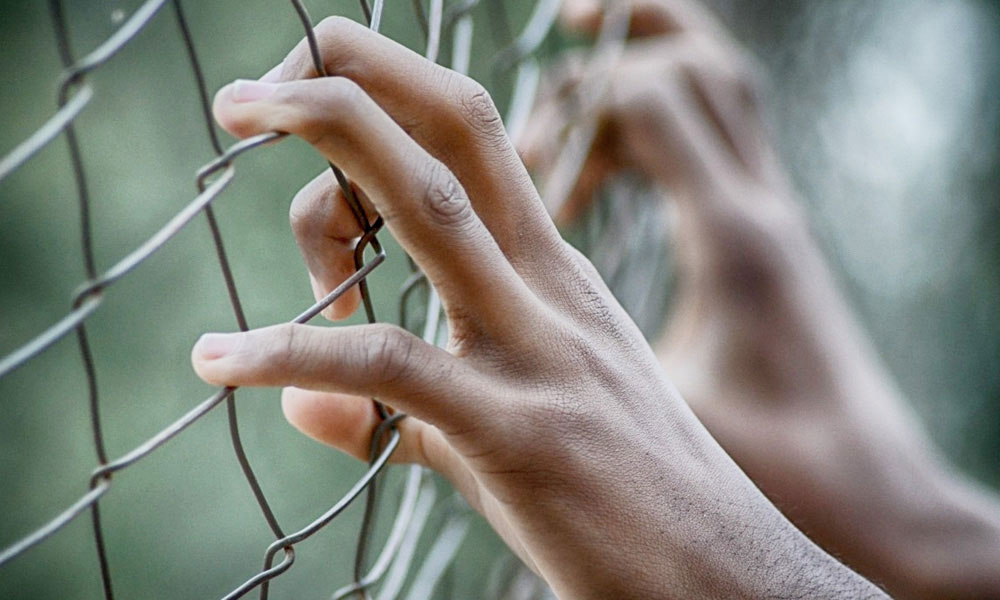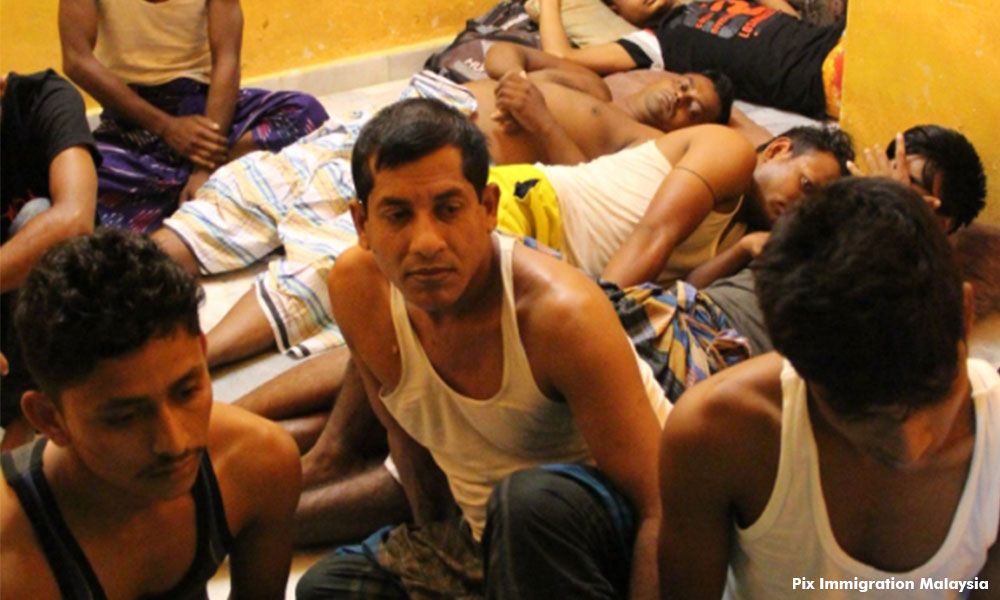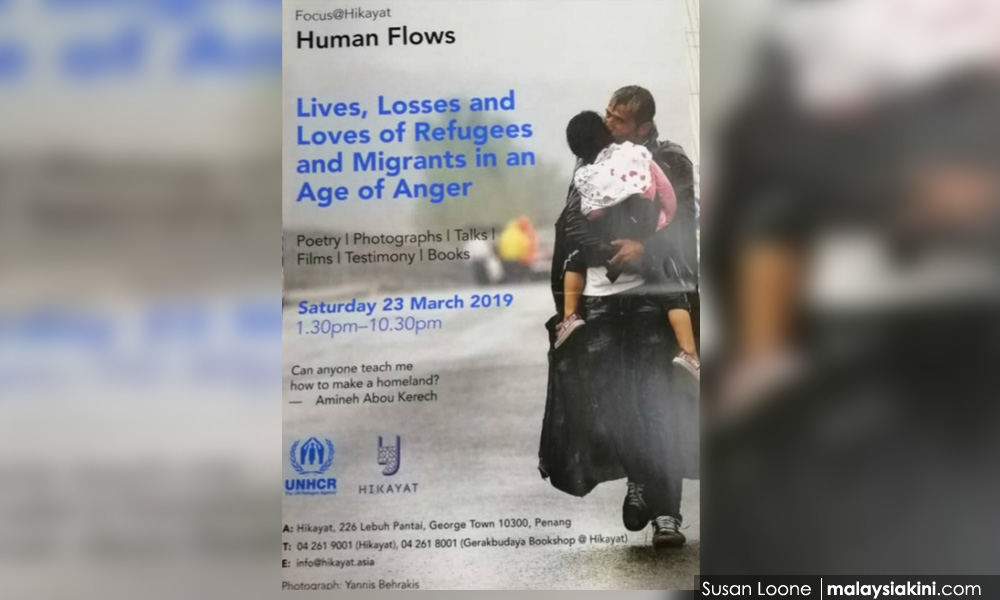
To us, good journalism is about telling stories that matter, that make a difference, that hold people accountable, that give a voice to those who don’t have one. And that can mean anything from urban poverty in Malaysia to disaster education in Japan.
- R.AGE
I have been following The Star’s R.AGE group of young journalists for some time. Admittedly, the growing pains of this outfit were painful to observe in the early days. However, I always thought The Star was on to something when they started this.
The recent nomination of the team’s work for a Peabody Award (the second) under the category of “Public Service” is something they should be congratulated on, but more importantly, everyone should help spread the word on the subject matter of their documentary.
Concerning the subject matter of their documentary, I am biased. I consider human traffickers the lowest of the low when it comes to a criminal enterprise. Check that. I consider politicians who are in league with these criminals as the lowest of the low. I even despise the term “human traffickers”. These cretins are “slavers”.
The R.AGE team’s documentary and feature story on the web of predators, survivors and business connections from Bangladesh to Malaysia highlight the corruption of the system and the reality that activist groups like Tenanganita have been confronting for decades.
What this documentary about human slavery does is juxtapose the personal and the apathy of a consumerist society on the plight of a group of people who are more often seen as a threat to stability and social cohesion than victims of capitalist imperatives which sustain a fast-changing economy.

Here’s is an excerpt of the scam that young people from Bangladesh are sucked into, from reportage by R.AGE: “The most common lie the agents told is that college students can work part-time in Malaysia on a student visa, and that’s the crux of the scam.
"In Malaysia, dozens of victims we spoke to said this convinced their families to take out their life savings, to sell land, to loan money, even, just to pay the agents, thinking they could earn it back through part-time work. Saddled with debt in a foreign country, and with an agent who could easily get you arrested and deported, these would-be college students are then forced to work illegally as cheap labour (often in dangerous construction sites), all the while facing constant exploitation.”
However, this is more than just a special interest story, that peculiar news genre meant to tug at your heartstrings. The R.AGE team has a more specific agenda which is to expose the black economy that sustains legitimate commerce in this country.
A detailed overview of what these “agents” do in this country should be the starting point for the relevant local agencies to open investigations into various crimes if they were interested in pursuing such objectives, that is.
The team interviews an agent, who is connected to a “Datuk” who supposedly owns a college, but who is not present at what the agent thinks is a business transaction. The agent boasts since 2013 he has brought in 8,000 Bangladeshi students and proceeds to give a low down on how this vile business works: “He can secure foreign workers for us by using the college to issue them student visas.
“What’s more, he can keep them in Malaysia for up to 10 years by enrolling them in a succession of courses, from basic language courses and diplomas all the way up to a PhD.
“It just depends on whether you can pay the cost or not,” he says.
“Everything to do with the visa, I’m handling, so you don’t have to worry. If you agree, and you have no objections, I can process it tomorrow.”
Like all engaging documentaries, this one finds the journalist investigating nearly every aspect of the slavers trail, from, the streets of Malaysia, to Bangladesh.
In Farmgate, the epicentre of this dark business, an agent boasted that he has contacts with the Malaysian Embassy, and a genuine agent claimed: “Small colleges, institutes and language centres (in Malaysia), they are involved in this business. They are the main ring leaders. They need the students, they need the money. Whether (the students) come for study or for work, it doesn’t matter.”
This goes far beyond stereotypes of bad people doing evil things, but rather the complicity of state actors and criminal enterprise in sustaining a slave labour workforce that supposedly benefits the economy of this country.

There is another worrying aspect of this story which is not explored by the R.AGE team, but which has been a preoccupation of mine. When we talk about human slavers, an aspect that is often missed is the reality that if the system is so compromised when it comes to moving people in and out of the country, how dangerous could it be for non-state actors to smuggle extremists into this country using the same pipeline?
Cells of religious extremists could be smuggled into the country and they would be unwittingly aided by elements in this country who assume that everything is business as usual. I doubt there is a vetting process when it comes to the types of victims of these enterprises.
The work of these young journalists should be highlighted. Congratulations to these young journalists for their Peabody nomination (you are in an interesting company).
S THAYAPARAN is Commander (Rtd) of the Royal Malaysian Navy. A retired barrister-at-law, he is one of the founding members of the National Patriots Association. - Mkini



No comments:
Post a Comment
Note: Only a member of this blog may post a comment.